MercoPress. South Atlantic News Agency
Tag: agriculture
-
Friday, April 12th 2019 - 21:33 UTC
Instead of agrochemicals, Uruguay uses wasps to develop non-genetically modified soy
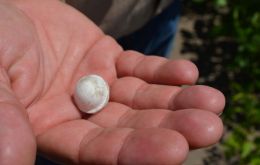
In Uruguay, non-genetically modified soy (GMO) soy is being developed in order to compete in a market saturated by the volume of crops in the region. Nevertheless, the country’s government hopes Uruguayan soy will stand out for its quality rather than for the volume of harvests motivating soy producers to use “biological controls” to combat pests.
-
Thursday, April 4th 2019 - 09:46 UTC
Argentine soybean farmers sign delayed-price contracts hoping for a US/China trade deal and higher prices
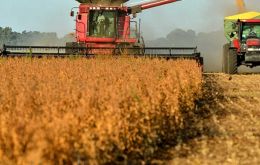
Soybean growers in Argentina are playing a waiting game, wagering on better prices ahead as the U.S. and China inch toward a trade deal and as nation’s currency keeps depreciating. Farmers on the Pampas arable belt have signed delayed-price contracts for almost three quarters of the 12.2 million metric tons they’ve sold to crushers and exporters so far, according to government data. That compares with 60% at the same stage last year.
-
Friday, March 22nd 2019 - 08:52 UTC
Brazil farm minister not satisfied with US promises of market opening for fresh beef
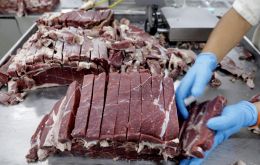
Brazil’s farm minister said that a U.S. agreement to conduct further inspections on the country’s meatpacking system is a step toward reopening the United States to fresh Brazilian beef, but is not sufficient.
-
Friday, March 22nd 2019 - 08:29 UTC
What new WTO and OECD status would mean for Brazil

Brazil’s agreement with the United States to forgo special treatment by the World Trade Organization (WTO) would apply only to future negotiations within the multilateral trade body, Director General Roberto Azevedo said on Wednesday.
-
Wednesday, March 20th 2019 - 08:54 UTC
“Fall armyworms” have reached Asia and are munching crops; FAO meeting to address the challenge
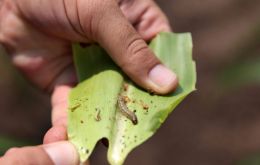
Farming in several Asian countries is under threat from a type of crop-damaging insect that has munched its way from the Americas and across Africa, the United Nations' food agency said on Wednesday as global experts commence a three-day meeting to discuss ways to limit the damage.
-
Monday, March 18th 2019 - 08:18 UTC
US wheat and Brazilian fresh beef included in agriculture talks in Washington

Brazil is considering granting an import quota of 750,000 metric tons of U.S. wheat per year without tariffs in exchange for other trade concessions, according to Brazilian officials. That is about 10% of Brazilian annual wheat imports and is part of a two-decade-old commitment to import 750,000 metric tons of wheat a year free of tariffs that Brazil made — but never kept — during the World Trade Organization's Uruguay Round of talks on agriculture.
-
Friday, February 1st 2019 - 09:59 UTC
Brazil and China prepare for first high-level political and economic talks since 2015
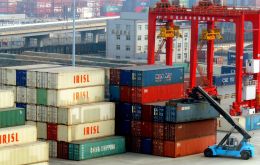
Brazil and China are expected to hold their first high-level political and economic talks since 2015 later this year, Brazil’s agriculture trade secretary said on Thursday, in a move likely to boost farm trade between the two countries.
-
Monday, January 28th 2019 - 08:32 UTC
Brazil's corn and soybeans January exports booming

Brazil is poised to export more corn than soybeans for the first time in a year this January, although sales of the oilseed remain high for the period, according to government and shipping data.
-
Saturday, January 19th 2019 - 09:22 UTC
Extreme wet January displaces thousands and floods farmland in Mercosur member countries

Intense rainfall in northeast Argentina and neighbouring areas in Mercosur members has caused devastating floods, amplifying the economic burdens of Argentina's recession. Over 5,000 people have evacuated the region, and millions of hectares of crops have been sent underwater.
-
Thursday, January 10th 2019 - 08:32 UTC
Brazil's soybean crop forecast cut 4.5m tons: hot spell in southern states

Brazil’s 2018/19 soybean crop forecast was cut to 116.9 million tons on Wednesday from 121.4 million tons late in November, said consultancy AgRural, blaming extreme heat and a dry spell in southern areas for the smaller projection.
